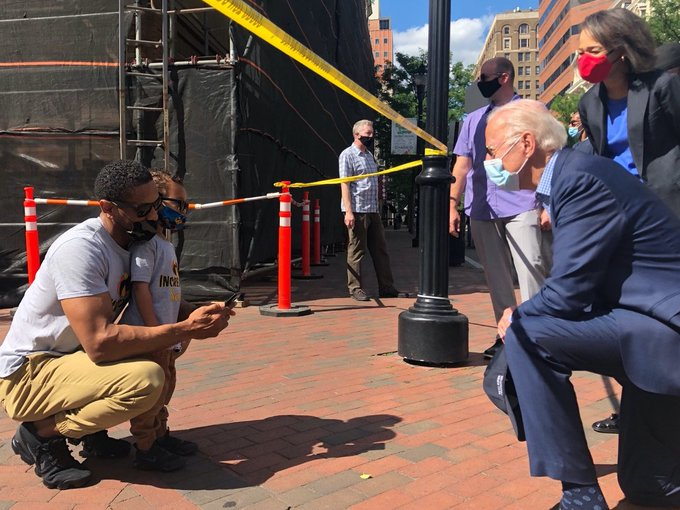
For the record, Joe Biden has not vociferously advocated defunding. He has not been able to dodge those accusations because of the many around him who have celebrated the idea, including the Vice President. He also lives under the shadow of his own Vice Presidency under one of the most anti-law enforcement presidents in my lifetime.
My concern with the President’s proclamation during the State of the Union address to “Fund them (the police) with resources and training they need to protect our communities” (which Nancy Pelosi has said has no place in the Democrat position), is that there will be strings attached. Make that chains attached. Make that federal control attached.
Biden clearly does not trust police leaders and local government leaders with the task of policing their communities. Law enforcement agencies will find it hard to turn down federal dollars, perhaps with gritted teeth. I haven’t seen the grant applications. The applications for the old COPS programs under the Clinton administration were very simple. Some are not and the cost of personnel or grant specialists to get them can be considerable. There are also typically reporting requirements, creating more work for the agency.
Most grants forbid supplanting, which means that the new dollars cannot replace old dollars. If the previous budget allotted $50,000 for a new patrol car, most grants will not let the receiver use the money for that already budgeted item. Many, if not most, agencies – especially the smaller ones that represent most police departments in the country – need essential funding.
If these federal dollars create future costs, they may need to be turned down. The old COPS grants that I dealt with would add police officers with declining percentages of support over a few years at which point my agency had to bear the cost of the added officers. We were not able to do so and suffered no sanctions from the grantors, but grants are always subject to audits and repayments.
Another requirement may be that agencies engage in programs prescribed by the grant which may not meet the urgent needs of the police department. Creative grant writers and administrators may be able to contort the funds to their real needs at the risk of losing their award. When drug enforcement was a federal priority, I asked for manpower and equipment. When community policing was a federal priority, I asked for manpower and equipment. When fighting terrorism was a federal priority, I asked for manpower and equipment.
With Biden’s pride in supporting the COPS program in his Senate days under President Clinton, he continues that theme. As an expert in community policing, having written my doctoral dissertation on the topic, the continued push for it has some deep flaws. I am an advocate of community engagement, partnerships with governmental and non-governmental, and innovative problem-solving. Specific definitions and modeling of what community policing is have been a controversy since old-fashioned police work was re-labeled as community policing.
Aside from the disparity of what community policing looks like, we have to ask the question of whether the concept has made a significant difference relative to the investment in it. No doubt there are success stories all across the country of better public relations, more effective problem solving, and crime reduction, but these activities seldom need a ton of federal money to accomplish. Further, let’s look at the current condition of the relationship with the public. Although most citizens still trust and respect the police, there hasn’t been a time in history when that trust and respect has been lower or had a greater impact in derailing police morale and effectiveness. So, either community policing wasn’t done enough, was done wrong, or didn’t make a difference its practice for over thirty years hasn’t brought us to a good place in policing. My purpose is not to criticize community policing, but to say that if this is the basket a lot of the Biden money is going into, the results are uncertain.
The Biden administration will also be funding “gun crime” initiatives which, while some may have merit, are bundled with clear hostility to American’s 2nd Amendment freedoms. As has been argued for decades, the enforcement of current state and federal laws regarding firearms use would be a sufficient crime deterrent if only applied before adding reams of new laws and regulations with no scientific evaluation of their potential reward in lowering violent crime.
The government, in its typical rush to respond to headlines rather than real systemic problems, has already entangled many manhours in the business of red tape, regulatory reporting to bureaucracies, and threats of the Justice Department to take over their police departments. So-called national standards for training and policy are always a specter just as are all of the federal agencies operating on their own with little accountability. If one were a conspiracy-oriented thinker, one could make a credible case that the end goal is to federalize law enforcement. Federal partnerships can be great, but we must retain the control of policing to local communities’ voters